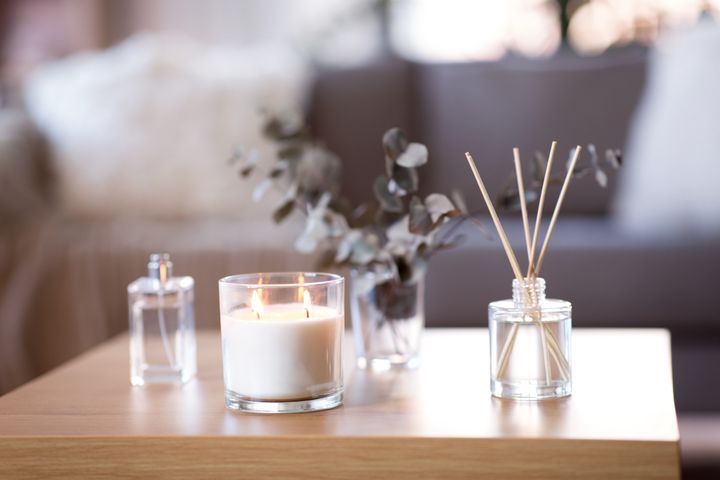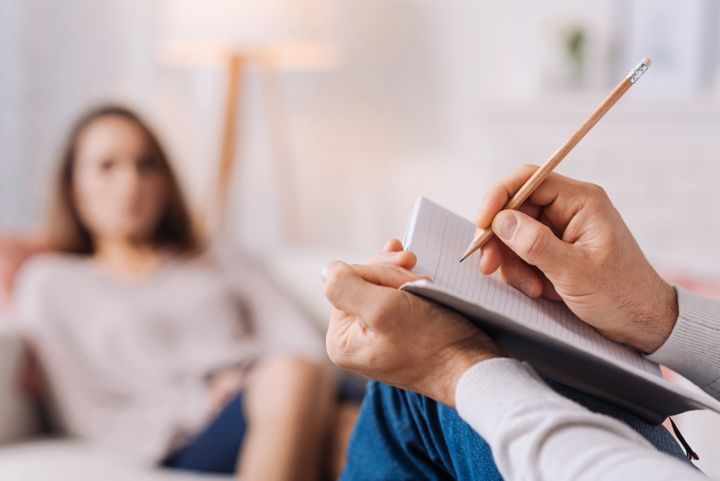Panic attacks are an exhausting experience because they take a toll on your physical and mental well-being. I have been struggling with anxiety and panic attacks since I was 14, and because mental health is not something people discuss openly, I could never identify what I was dealing with. It was only when my parents took me to a cardiologist that I was expressly told that what I was experiencing was a panic attack. It’s a hard place to be because I had not identified my triggers. I had no idea how to process all the emotions that I was suppressing. I was always independent and a fighter, so I started finding anchors, in the people around me—friends, family and boyfriends. They started keeping me sane and healthy.
Although as I aged, I started paying closer attention to the details. What was it that was causing me to stress and worry? I started to zoom out of my emotions on the good days and focus on the problems and try to find solutions. I asked myself: Is this something I can control? If I can control it, what are my options? And if I cannot control it or moderate the outcome, I’ve learnt to let things unfurl at its own pace. I’m truthfully a lot better with my condition now and have worked really hard at noticing the triggers and managing them.
Here’s a look at a few points that I’ve tried and tested to pull myself out of a panic attack:
1) Grounding
Very simply grounding means focusing on what is around you. Paying attention to detail. Remember to spot, 5 things you can see (I say what I see out loud to myself), 4 things you can touch (I try to touch these items), 3 things you can hear (I strain to visualise where the sounds are coming from, e.g. car, fan, etc), 2 things you can smell (I say what I’m smelling out loud too) and 1 thing you can taste (put a sweet in your mouth). I keep several candies handy in my cupboard.

2) Scented Candle
Several areas of my room are covered in scented candles, mainly because I love a dimly-lit romantic space. But it also helps facilitate my first point. Sometimes when I’m having a panic attack, I will go light a candle and just sit there in front of it. Look at the flame flicker, watch the wax melt away and smell the scent that eventually calms my nerves. You can also alternatively burn some incense, sage or agarbatti or aromatherapy with essential oils or simply smell your fresh laundry. I enjoy lemongrass, lavender and bergamot scents. Some of these can also help you sleep better.

3) Music
I bought myself a Wonderboom, a waterproof speaker and it sits on my bed-side table. It simply serves the purpose of being there for me when I need it most. When I’m in the midst of a panic attack or see the signs of one coming on, I swiftly play some calming music. Many of my friends have described my taste in music to be melancholic like me, but I find it soothing to my soul. Make a playlist for moments like these—my playlist is called chill mix. Quite an apt title I say.

4) Breathing Exercises
Try to pay attention to the way you’re breathing. If you’re at home find a comfortable spot and cross your legs and sit still. Close your eyes and call focus to your laboured breathing. One thought will multiply quickly into two, so keep that focus on the way your stomach contracts and expands when you breathe. Maybe place your hand flat against your stomach to actually feel the movement. Your breathing and heart rate will slow down and steady itself. Sometimes I watch this video of expanding shapes and try to breathe with it.
5) Pets
When my dog was alive, he was my sounding board. He would know just when I was having a dip in my mood and show up as my saviour. I would hug him and squeeze him and cry to him and he would just sit there and let me. He was just the best thing that ever happened to me and not a day goes by without a thought of him crossing my mind. I have a cat now and he’s the funniest lil fella. He doesn’t aid my process the way my dog did but he has a way of making me laugh and lets me cradle him like a child when I need some TLC.

Some other healthy things I’ve done in the past to help me with panic attacks:
- Run my wrists under cold water, my body temperature drops immediately and my attention is immediately drawn to the sound of running water.
- If you can conjure up the strength to text your anchor, then do that and try to get on a call with them. However, always ask your anchors if they have the mental space to deal with your problem. We don’t want to overwhelm anybody and inundate them while they struggle with life too.
- Drinking ice-cold water helps me, steady my nerves too.
- I’ve looked into the mirror, screamed at myself. Slapped myself although I don’t recommend it to anyone, it has helped pull me out of the dark hole I was going down.
- Crying can really help relieve the stress you feel, so find something that can trigger a nice crying session.
- I used to count backwards from 10-1, or do simple math cause it requires concentration. This is also a healthy tool to use when you wish to curb or contain your anger.
- Sometimes visualising a place you would like to visit or daydreaming can also snap you back into shape.
I speak for myself when I make these suggestions and truthfully different things work for different people. But when you deal with a mental disability for years and years you tend to have several methods to combat your issues. Some of these I would use when I was in the middle of work and couldn’t afford the luxury of space.

Please contact a trained therapist or seek help from a mental health professional for more methods or techniques to find what works best for you to manage your panic attacks.
Do you have any tips that you use to pull yourself out of a panic attack? Let me know in the comments below.
And don’t forget to follow @missmalinilifestyle for more interesting updates.

